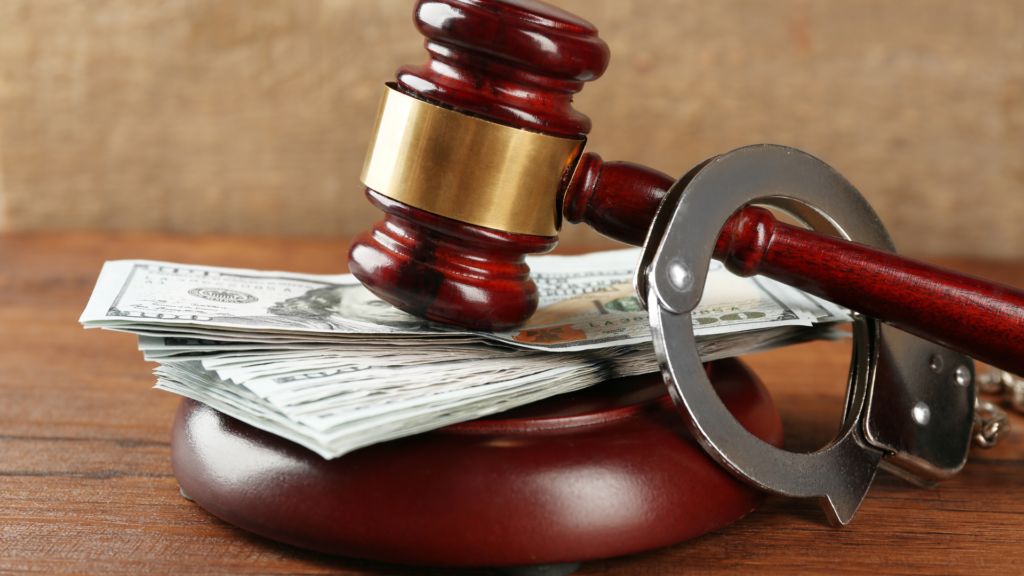Picture this: you’re sitting in a jail cell and your mind is racing. You’ve been arrested, charged with a crime, and want to get yourself out on bail. The only problem? You don’t have the money. It’s a situation that no one wants to be in but unfortunately one that happens all too often. That’s why we’re here today – to explore your options when it comes to affording bail. From loans to working with a bail bondsman, we’ll break down everything you need to know so that you can get back home where you belong. So buckle up and let’s get started!
Why You Should Bail Out Of Jail
Being arrested and incarcerated can be a frightening and stressful experience. However, the option of bailing out of jail may alleviate some of that stress. There are several reasons why one should consider this option.
Firstly, it allows for an individual to return to their daily life while awaiting trial or sentencing. This means they can continue working, taking care of loved ones or carrying out other responsibilities instead of being stuck in jail.
Secondly, bail gives an opportunity for those who are innocent to prove their innocence with the help of legal representation rather than spending time behind bars where they cannot effectively prepare for their case.
Lastly, posting bail often shows good faith on behalf of the accused which can be helpful during court proceedings as it demonstrates responsibility and accountability.
How To Afford Bail
Many people can’t afford bail, which is set by a judge and is based on the crime committed, the defendant’s criminal history, and flight risk. There are a few options for those who can’t afford bail.
One option is to contact a bail bondsman like Alanas Bail Bonds. Bail bondsmen typically charge 10% of the bail amount, which must be paid in cash up front. The bondsman then pays the court the full bail amount. The defendant is responsible for repaying the bail bondsman if they skip town or fail to show up for their court date.
Another option is to contact a surety company. Surety companies work with insurance companies to post bail for defendants. The premium is usually around 10-15% of the bail amount and must be paid upfront. The company then pays the court the full bail amount. If the defendant flees or misses their court date, they are responsible for repaying the surety company.
A third option is to find a cosigner. A cosigner agrees to pay the bail if the defendant does not show up for their court date or tries to flee. The cosigner must have good credit and enough money to cover the entire bail amount if needed. If everything goes according to plan, the cosigner will never have to pay anything. However, if the defendant does not show up for court or tries to flee, the cosigner will be held responsible for paying the bail amount.
Asking Family And Friends For Bail
Asking family and friends for bail can be a tough call, but one worth making. It might feel awkward or embarrassing, but you know that they care about you and want the best for you.
Approaching your circle with honesty and transparency is key. Tell them about your situation and why you need their help. Be clear about how much money is required and what the terms are for repayment (if any).
It’s also crucial to respect their decision if they’re unable or unwilling to lend monetary assistance – there may be personal or financial reasons that preclude them from doing so. Remember that other forms of support, like emotional comfort or practical aid (such as helping take care of children), can still make a big difference.
Loans And Credit Card Use For Bail
When faced with a sudden need for bail money, taking out a loan or using your credit card may seem like a viable option. However, you should fully understand the consequences that can come with this.
Taking out a loan for bail may come with high interest rates and fees. If you are unable to stay on top of your repayments, this can negatively impact your credit score.
Using a credit card for bail may also come with high interest rates and fees. It’s important to note that most credit cards have cash advance limits that are typically lower than the overall limit on the card. Plus, using your full available balance could result in increased monthly payments and ultimately damage to your credit score.
Be sure to read all of the terms and conditions before signing any agreements. It’s always best to weigh all options carefully before committing yourself financially in order to avoid further problems down the road.
Financial Assistance Programs For Bail
There are a number of financial assistance programs available to help people pay for bail. These programs can be either government-sponsored or private, and they can provide either direct financial assistance or loans.
One example of a government-sponsored program is the Federal Emergency Management Agency’s Disaster Relief Fund, which can provide up to $500 for bail expenses in the case of an emergency.
Private organizations such as the American Red Cross and United Way also offer financial assistance for bail in some cases.
Some states also have programs that provide interest-free or low-interest loans for bail expenses.
Conclusion
Leaving jail and returning to your normal life can be made much easier by opting for a bail bond. However, if you can’t afford bail, there are still means that can help get you out of jail. You may be able to speak with the judge or public defender about changing the amount of your bond, or opt for an alternative such as pretrial supervision. Before making any decisions about how you’re going to pay bail fees, it’s important that you understand every course of action you could take should you ever need to – although, hopefully, this won’t be the case!

